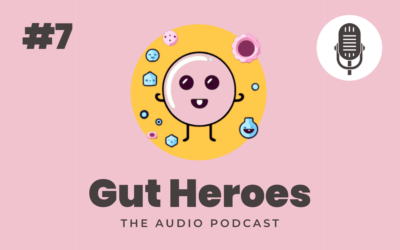Ankylosing spondylitis can be an exhausting condition to live with.
Not just for the person with AS but for those around them as well.
It can make your loved one irritable, immobile, unable to help as much around the house and that’s not fun to be around.
The fact you are reading this is fantastic. It marks you apart as someone who cares enough to seek out this information.
What follows is a list of suggestions which may help.
Nothing is set in stone, and you will know that person in your life best, but hopefully this will give you a place to start.
Understand this isn’t just ‘back pain’.
This isn’t an ‘injury’ which will heal, or stiffness from overdoing it. And it’s not psychological either.
Ankylosing spondylitis is a disease where your body is constantly fighting itself. These battles typically play out along the spine: the sacroiliac joints, the ribs, the shoulders, the neck and other parts of the body.
Rheumatologists can see this activity through MRI scans, while X-Rays will show any bone fusing, contortions and damage to the spine.
They also find raised inflammatory markers in an AS patient’s blood (similar to that of the flu virus) as their body continually fights this disease.
And you don’t need to be a doctor to see what ankylosing spondylitis can do to a person over the long term.
You can see the horribly cruel effects this disease can have, when left untreated, if you look at an older person with AS.
(Google images search for “elderly ankylosing spondylitis” for an idea).
The craned neck and hunched back and shoulders are hallmarks of years of damage caused by ankylosing spondylitis.
I’m not leading with this to scare you or shock you but to highlight how serious this disease can be.
Imagine the exhaustion and brain fog from your immune system constantly fighting off an invisible invader.
There is constant pain from joints inflaming over and over again as these battles in the body rage… and from the scarring and bone fusing.
Flares come in waves
Ankylosing spondylitis pain never really goes away entirely but there are times when it is less ‘active’.
The pain typically comes in waves called flares. These can last anywhere from a few days to a few weeks.
When a patient’s in ‘flare’ It can really affect their mood
You can read about what it feels like here.
Link here to the article about how it is somewhere between non-terminal cancer pain and assisted childbirth.
Practical things you can do
Avoid leaving obstacles lying around on the floor
A stumble for someone with ankylosing spondylitis can be extremely painful so any trip hazards should be avoided.
Movement in general – particularly outside of the normal range – can also be exhausting. Side stepping around or over objects might seem innocuous but they can be feel like mountains.
1. Offer to come with your loved one to appointments
Appointments with GPs and rheumatologists can be overwhelming, especially when you’re new to this condition and in a lot of pain.
Having a partner, friend or relative there to provide support, champion their interests (and make sure they don’t leave anything out) can be a huge comfort and confidence boost.
2. Encourage them to keep a diary so they can learn what works (and what doesn’t!)
help them learn with you if they are following a strict diet. It is so much easier if both of you know or understand or configure out what’s you can eat if you’re in a restaurant for example
The diet is restrictive. If you can think of treats that they will enjoy. Maybe a restaurant that serves starch free food or some kind of starch-free thing you can make them or treat them to.
3. Help remind them to stretch and exercise
Spinal stretches, yoga and pilates can all be extremely effective in helping manage ankylosing spondylitis.
Sometimes they’ll be in too much pain, but other times – like all of us – they might not feel like it. Do what you can to help encourage and motivate them.
Do an exercise together that will help both of you. If you are both motivated, you will help each other
4. Check in with them from time to time
My default mode is to say that everything’s going great and to celebrate all the success that the diet and lifestyle has given me but things are not perfect. Is extremely hard work.
Sometimes it feels like plate spinning. There are times that the flares can come back for seemingly no reason. You turn your life upside down and it can still come for you.
About a year and a half into the diet I was out socialising with friends when someone told “I didn’t know real pain” and that AS was nothing (compared to the pain they felt with their mental health struggles). It wasn’t malicious, and we were both drinking, but it hit me like a ton of bricks. I just burst into tears for about 20 minutes which surprised me. I was doing great at the time, I didn’t know all of this was bottling up inside me.
But ankylosing spondylitis is a constant looming threat. We can stay on top of it but it’s a thing that we live with every second of the day. Even when we are pain free there is a constant fear or panic that if we just drop the ball for just a second the pain could come rushing back. Check in from time to time to see how they are doing.
5. Try not to make them feel different
Our diet and lifestyle is very different from the norm. It is weird but we’re hyper aware of that.
It probably means that meals might be a little more awkward from time to time, maybe they’ll have to eat something a little different to you.
Maybe some restaurants are off the cards now with that person. It’s frustrating but try not to make them feel bad about this.
Remember this isn’t a choice. Your loved one, who’s managing their AS through diet, has had to remove a vast chunk of delicious everyday ingredients from their life. Things that they used to love. Things that gave them comfort. Things that made it easy to socialise.
This isn’t something they want to do and they’re not doing it to make your life difficult so try to cut them some slack when it comes to adjustments.
6. Help them discover things
A person suffering with a condition will often become an expert on it.
Because they are living with it and they’re desperate to find solutions the chances are they are pretty cleared up on stuff.
But if you come across an interesting development, or read about a new scientific paper or something that raised awareness about AS (and you think it would help motivate them) of your loved one, then share it!
7. They might do some weird things to manage the pain (try not to ridicule them!)
Supplements… heat packs… lotions and potions.
No one wants to take expensive supplements or have to go to the faff or effort of preparing special foul tasting drinks or remember to swallow pills at certain times of day.
They certainly don’t want the expense or inconvenience.
Some of these supplements will be things that work for them and not others. Some will have some great scientific backing behind them. Others will not. Some might only have success due to a kind of placebo effect.
It doesn’t matter! If it works, great! If it doesn’t let them move on in their own time. Try not to question or ridicule things might be trying to get healthy and reduce pain even if it looks like a waste of time.
It is their choice. The best thing you can do is be supportive. Casting doubt will just add stress to the situation and may make them feel unsupported. They need every leg up in terms of motivation and support on this journey.
If you show an interest, that’s great! There’s a big difference between discussing something and trying to understand it over saying it won’t work. The chances are they have already done hours of research into this and will be delighted to chat to you about it.
8. The 3 BEST ways you can help
There are 3 areas where you can really help.
These might not always always make you the most popular because they involve motivating them to do things they might find boring or restrictive but they will thank you in the long run!
- Diet: Encourage them to stick to the diet that’s working for them
- Exercise and stretching: Ask them how it’s going, remind them to stretch if they haven’t done so for a while
- Stress levels: See if you can help them to avoid necessary stress where possible
These are three things you could say about any human being, but for someone with AS they are not just daily guidelines or ‘nice to haves’, they are essential.
If you can help keep them focused and motivated, especially when they are going through a low, it will pay dividends.
They will be happier, more relaxed and more able to help out and do things with you.
The most important take away from all of this is that you are doing great already.
The fact you are reading this and you are taking the time to understand your loved ones condition and more than that: looking for way to help them, is amazing. They are incredibly lucky to have you in their lives!



0 Comments